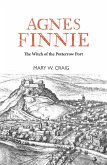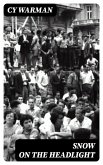In "Angel Agnes," Charles Wesley Alexander weaves a poignant narrative that explores themes of spirituality, redemption, and the profound connections between the human and the divine. Through a rich tapestry of lyrical prose and vivid imagery, the novel invites readers into the life of its titular character, Agnes, a celestial being who descends to Earth on a mission to foster hope in a world fraught with despair. Alexander deftly employs allegory and symbolism, creating a work that resonates deeply within the literary canon of spiritual realist fiction, echoing the traditions of authors like Flannery O'Connor and C.S. Lewis while maintaining a unique voice. Charles Wesley Alexander, a scholar of theology and literature, draws on his profound understanding of the human condition and the complexities of faith to craft this evocative tale. His background in both academic and ecclesiastical settings informs the depth of philosophical inquiry that permeates the text. Alexander's personal journey of introspection and his commitment to exploring the intersections of morality and spirituality underpin the authenticity and emotional resonance of "Angel Agnes." This book is highly recommended for readers seeking not just a story, but an illuminating experience that challenges the boundaries between reality and the ethereal. With its intricate characters and thoughtful examination of existential questions, "Angel Agnes" promises to leave a lasting impact on all who engage with its profound message.
Dieser Download kann aus rechtlichen Gründen nur mit Rechnungsadresse in A, B, BG, CY, CZ, D, DK, EW, E, FIN, F, GR, H, IRL, I, LT, L, LR, M, NL, PL, P, R, S, SLO, SK ausgeliefert werden.









